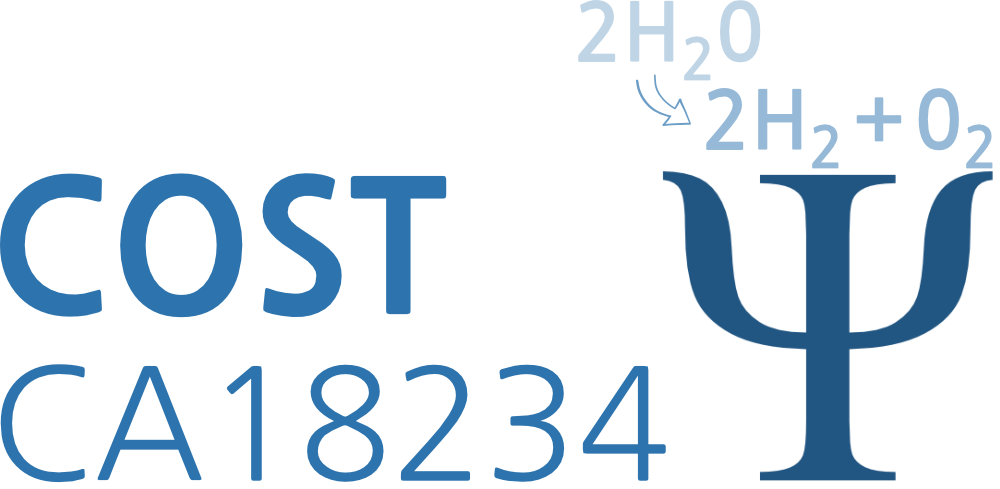
PROGRAM – download (PDF)
Version 14th feb
Abstracts
Electrochemical water splitting: state of the art (keynote talk) Federico Calle-Vallejo (Barcelona, Spain)
Role of Dihydrogen Complexes in Hydrogen Evolution Reaction on Single Atom Catalysts, Giovanni di Liberto (Milan, Italy)
Oxygen Evolution Reaction with IrO2 and IrO2-based hybrid materials Xavier Solans (Barcelona, Spain)
Transitioning from barrier to porous Al oxides by tuning anodizing parameters, (invited experimental talk) Noeme Ott (EMPA, Dubendorf)
Water splitting on stepped STO surface: reaction mechanisms Yuri. A. Mastrikov (Riga, Latvia)
On the role of dopants and defects in tuning Oxygen electrocatalysis at transition metal oxide surfaces, Michele Pavone (Naples, Italy)
Black Titania – Insights from ab initio simulations, F. Mayrhofer (Freiburg, Germany)
Stability of the hematite supported oxide nanoclusters from MD simulations, Bartłomiej Szyja (Wrocław, Poland)
Biomass reforming into hydrogen production with ZrO2 using ReaxFF, Veerapandian Ponnuchamy (Izola, Slovenia)
Simulating thermodynamic and kinetic properties of surface states for OER catalysis, Nadav Snir (Technion, Israel)
Description: Variance-based Global Sensitivity Analysis: A Methodological Framework and Case Study for Microkinetic Modelling, Bart van den Boorn (Eindhoven, The Netherlands)


